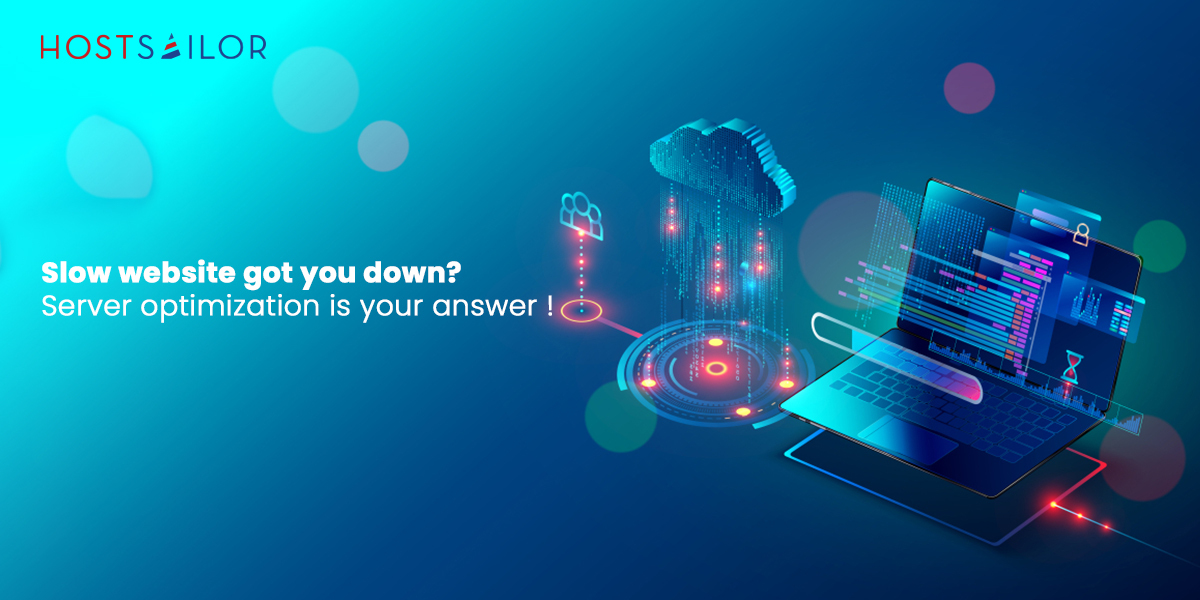

In today’s digital landscape, server performance is crucial for maintaining an efficient and responsive online presence. Server optimization plays a pivotal role in enhancing this performance, ensuring your website or application runs smoothly, efficiently, and quickly. Here’s why server optimization is essential and how you can achieve it.
What is Server Optimization?
Server optimization refers to a series of techniques and processes aimed at improving the performance, speed, and efficiency of servers. This involves adjusting the server’s hardware and software configurations to ensure optimal data processing and application delivery .
Why is Server Optimization Important for Server Performance?
- Enhanced User Experience: Slow-loading websites can frustrate users, leading to a poor user experience. Optimized servers ensure faster response times and a more seamless interaction, which is critical for user satisfaction and retention.
- Improved Conversion Rates: Website performance directly affects conversion rates. A slow server can deter potential customers, while an optimized server can handle traffic efficiently, leading to higher conversion rates and sales.
- Increased Reliability and Availability: Server optimization helps prevent downtime and server crashes, ensuring your website remains accessible even during traffic spikes. This reliability is crucial for maintaining your site’s reputation and availability .
- Cost Efficiency: Optimizing servers can lead to significant cost savings. By improving efficiency, you can reduce the need for additional hardware and lower operational costs.
Common Methods to Optimize Server Performance
- Caching: Implementing various caching mechanisms, such as memory cache, HTTP cache, and application cache, reduces the load on servers by storing and reusing previously requested data. This significantly cuts down the time required to generate web pages.
- Virtualization: This involves using software to divide a physical server into multiple virtual servers, each capable of running its own operating system. Virtualization maximizes resource utilization and allows for better server management.
- Content Delivery Network (CDN): A CDN distributes your website’s content across multiple servers located globally. This reduces the distance data needs to travel, improving load times for users regardless of their location.
- Database Optimization: Regularly defragmenting and optimizing database tables can enhance data retrieval times, improving overall server performance. Proper indexing and query optimization are also crucial for maintaining fast database responses .
- Reducing File Sizes and Requests: Minimizing the number of JavaScript and CSS files, optimizing images, and reducing the number of HTTP requests can lead to faster page loads and better server performance .
Benefits of Server Optimization
- Faster Load Times: Optimized servers deliver content faster, improving user experience and satisfaction.
- Scalability: Enhanced server performance allows your website to handle increased traffic without compromising speed or functionality.
- Security: Many optimization techniques, such as using a CDN, also provide added security benefits, protecting your site from DDoS attacks and other threats .
Maintaining Optimal Server Performance
To ensure ongoing optimal performance, it’s important to regularly monitor and adjust your server configurations. Using server performance monitoring tools can help identify bottlenecks and areas for improvement. Additionally, staying updated with the latest optimization techniques and regularly reviewing your server’s performance can help maintain its efficiency .
In conclusion, server optimization is essential for delivering a fast, reliable, and cost-effective online presence. By implementing best practices and regularly maintaining your server, you can ensure optimal performance and a superior user experience.
FAQ on Server Optimization
- What is server optimization?
Answer: Server optimization is a series of techniques and processes designed to enhance the performance, speed, and efficiency of servers. This involves adjusting both hardware and software configurations to improve data processing and application delivery, ensuring servers run smoothly and efficiently.
- Why is server optimization important for businesses?
Answer: Server optimization is crucial for businesses as it directly impacts user experience, conversion rates, reliability, and cost efficiency. Optimized servers ensure faster load times, handle traffic spikes better, and reduce operational costs by maximizing resource utilization. This results in higher customer satisfaction and potentially increased revenue .
- What are some common server optimization techniques?
Answer: Common server optimization techniques include:
- Caching: Storing frequently accessed data to reduce load times.
- Virtualization: Dividing a physical server into multiple virtual servers to maximize resource use.
- Using a Content Delivery Network (CDN): Distributing content across global servers to improve load times.
- Database Optimization: Regularly defragmenting and optimizing database tables.
- Reducing File Sizes and Requests: Minimize the number of JavaScript and CSS files and optimize images.
- How does server optimization benefit website performance?
Answer: Server optimization enhances website performance by ensuring faster page load times, reducing server response times, and handling higher traffic volumes efficiently. This leads to a better user experience, higher search engine rankings, and improved website reliability, which is crucial for maintaining a positive online presence.
- What role does a Content Delivery Network (CDN) play in server optimization?
Answer: A CDN improves server performance by distributing website content across multiple servers located worldwide. This reduces the distance data needs to travel, ensuring faster load times for users regardless of their geographical location. CDNs also offer added security benefits, protecting against DDoS attacks and other threats.
- How can businesses maintain optimal server performance over time?
Answer: To maintain optimal server performance, businesses should regularly monitor server metrics using performance monitoring tools, stay updated with the latest optimization techniques, and conduct routine maintenance such as database optimization and software updates. This proactive approach helps identify potential issues early and ensures servers continue to operate efficiently.